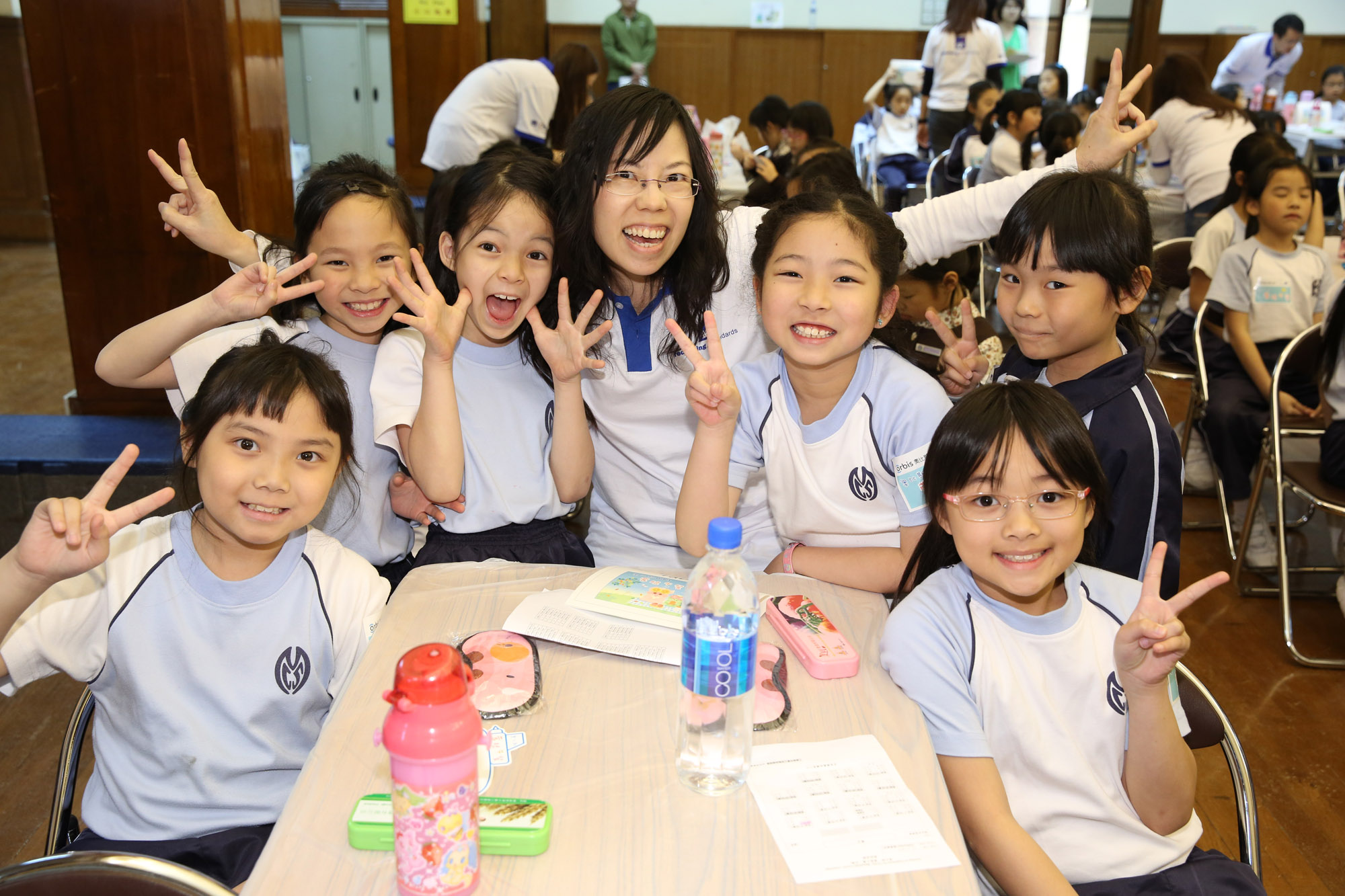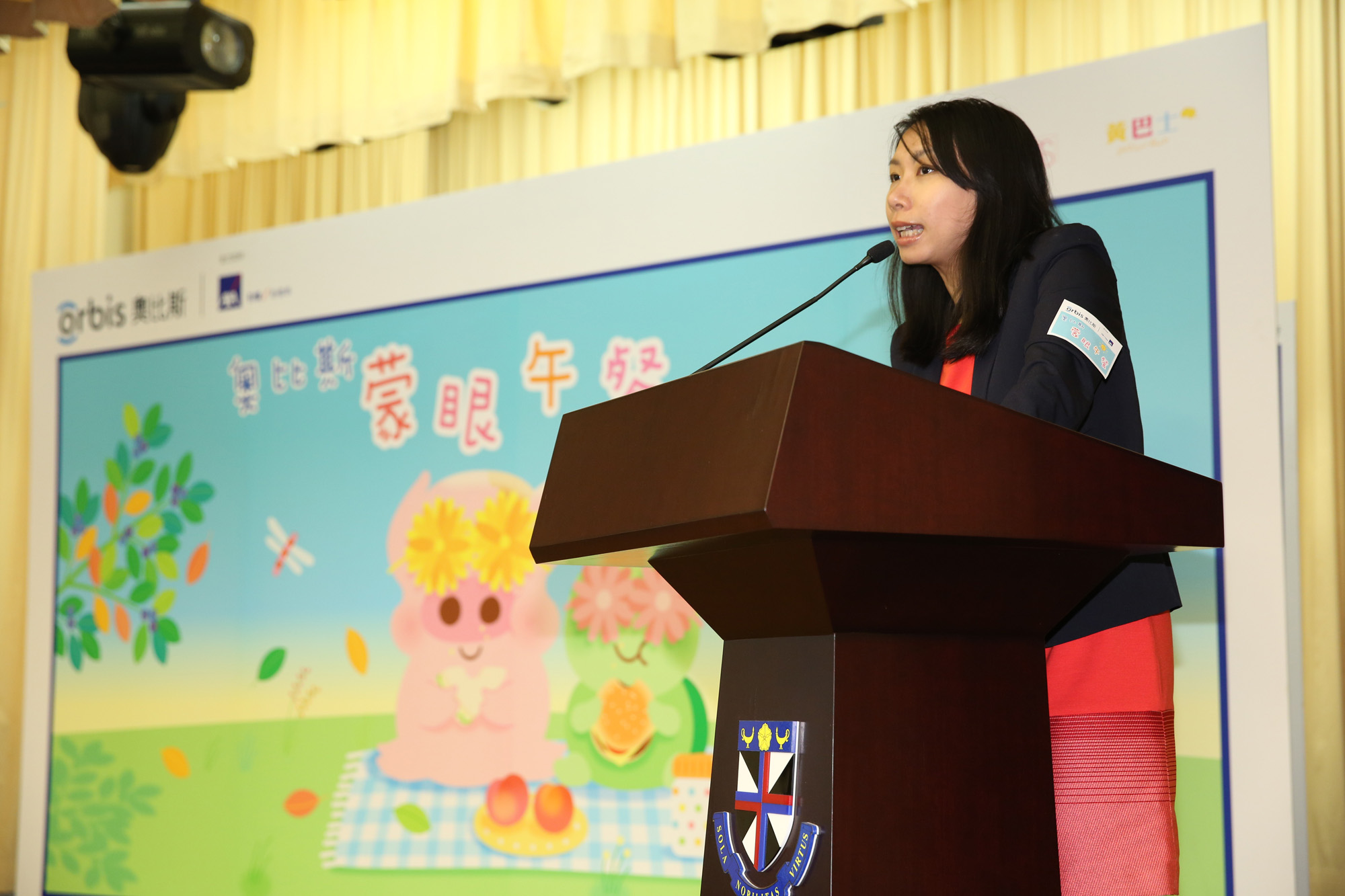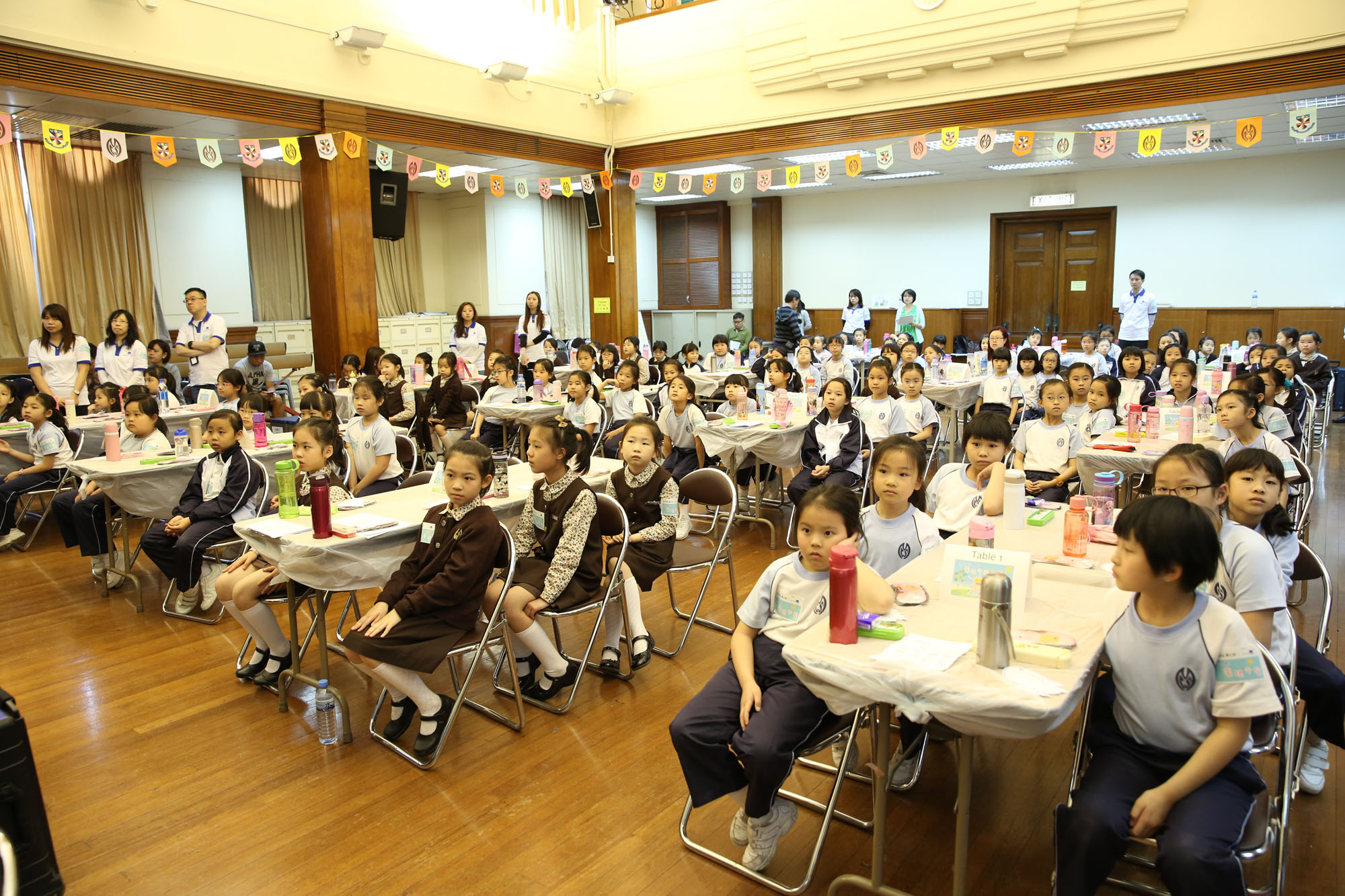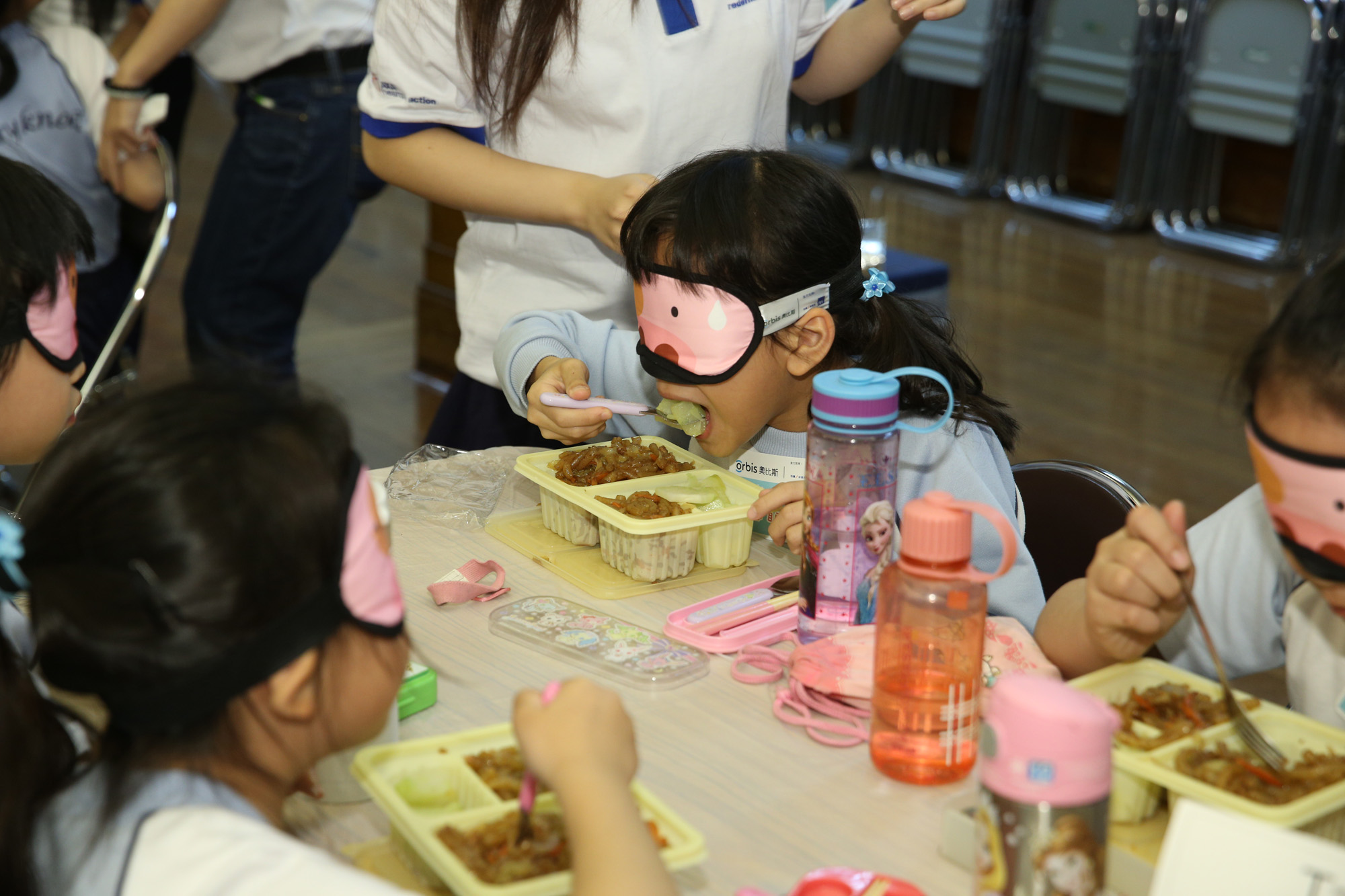Primary School Students & Parents Who Remain Unaware of the Perils of Myopia
Orbis is organizing an annual Blindfold Lunch again to enhance children’s eye-care awareness and concern for the visually impaired with the continuous and committed support from AXA Hong Kong. On April 14, around 100 students of Maryknoll Convent School (Primary Section) participated in the Blindfold Lunch, in the presence of Dr. Flora Lau (Pictured Below), Orbis volunteer ophthalmologist, who clarified several common misconceptions regarding myopia and shared simple eye-care tips. This is the fourth successive year AXA Hong Kong has sponsored the Orbis Blindfold Lunch. As always, the ultimate aim is to educate school kids about the importance of sight protection through eye-care talks and a hands-on blindfold experience. Nearly 80% of Parents Did Not Know that Myopia Sufferers are at a Higher Risk of Developing Cataracts
As parents play such an essential role in delivering eye-care messages to their children, Orbis conducted an “Awareness on myopia among parents” survey this March. 1,290 parents of eyeglass-wearing primary school students were subsequently interviewed on their understanding of the possible effects of myopia on their children. Findings showed that 57.4% of respondents were unaware that myopia sufferers were far more likely to be afflicted by glaucoma and/or retinal detachment. More worryingly, 79.4% of interviewees did not know that myopia sufferers were also far more at risk of developing cataracts.
About Half of Parents Thought that Lasik Eye Surgery Could Reduce the Risk of Developing Myopia-related Diseases Lasik sight corrective surgery is becoming increasingly popular amongst Hongkongers who no longer wish to wear glasses. Orbis’s recent survey shows that around 39% of interviewees said they had considered letting their children undergo such treatment once they get older. Of these respondents, approximately 48.2% thought Lasik procedures would lower one’s risk of developing myopia-related diseases such as glaucoma. “While Lasik eye surgery can correct refractive errors such as myopia, it cannot reduce the risk of developing high myopia-related visual complications,” warned Dr. Lau, Orbis volunteer ophthalmologist. “In cases where short sightedness becomes more severe, the potential for high myopia visual complications such as retinal detachments or tears measurably increase. Sadly, Lasik treatment can do nothing to reduce these risks.” Nearly 70% of Youngsters Have Inadequate Outdoor Activities
Dr. Lau went on to say that recent research shows that adequate outdoor activities can reduce short-sightedness amongst children. “According to the Orbis survey, youngsters in Hong Kong spend little time outdoors. In all, over half (66.6%) of interviewed parents stated that their kids spend one hour or more on outdoor activities at least once or twice a week. In fact, outdoor activities stimulate our bodies’ production of a chemical that stops eyeballs from elongating and hence prevents myopia. Parents should encourage their children to spend more time playing outdoors in order to reduce their risk of developing myopia,” Dr. Lau added. “While kids wearing glasses are everywhere in Hong Kong, it appears that many parents are overlooking the long-term dangers of myopia. Worryingly serious myopia-related conditions often lead to permanent visual impairment and even total blindness. We would like to extend our heartfelt thanks to AXA Hong Kong for their unstinting backing and for encouraging their staff to serve as volunteers today. Our gratitude must also go to all participating schools and students for their support and dedication,” said Ms. Mary Lau, Director of Development, Orbis China and Hong Kong. Ms. Andrea Wong, Chief Corporate Responsibility Officer, AXA Hong Kong said, “AXA Hong Kong is delighted and pleased to support this meaningful event for four consecutive years. Throughout these years, we are very excited and proud that over 18,000 primary school students have benefited from this educational event by gaining invaluable eye-care knowledge, and experiencing first hand the challenges faced by the visually impaired.”
|
|
















